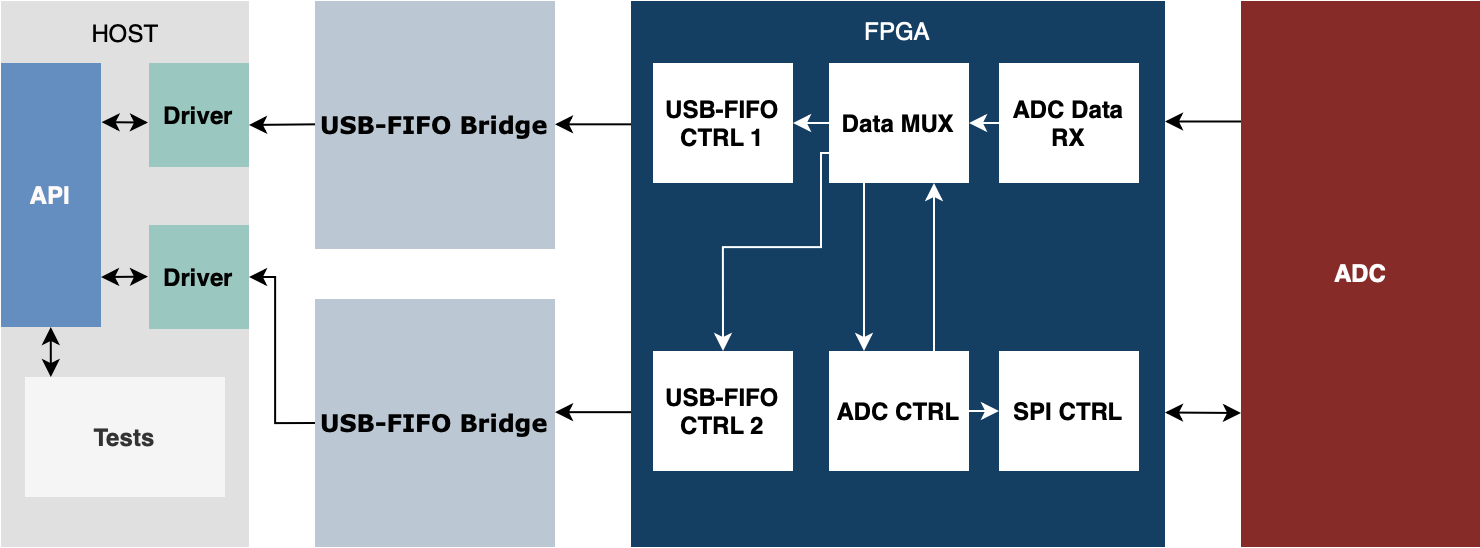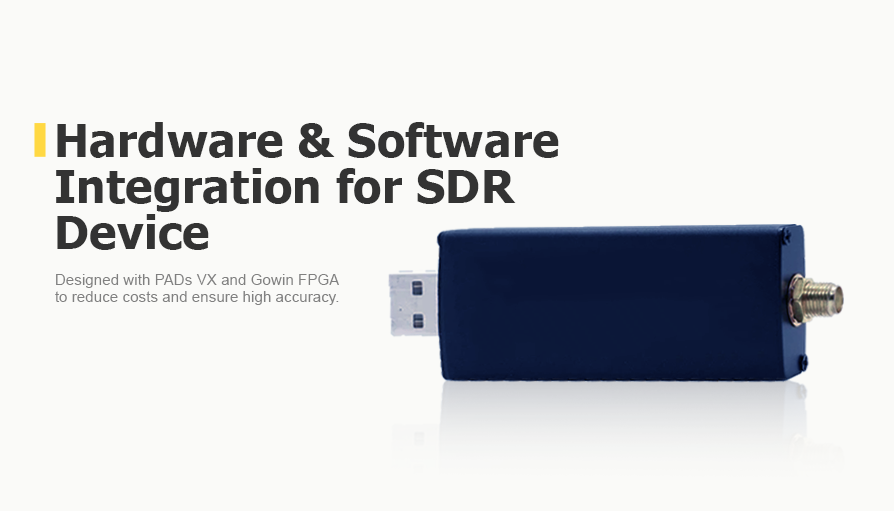Low-Cost ADC-MCU Integration for SDR Device
Client
A European manufacturer of SDR-based devices.
Challenge
We were tasked with designing hardware and developing software to interface the MCP37D21-80 ADC directly with an MCU that supports USB 3.0 speeds.
Our client's requirements:
- to use the FT600Q-FT601Q FIFO bridges and an FPGA;
- to ensure 65 user I/Os minimum;
- to reduce development costs.
Solution
Our engineering team performed the following tasks:
- Valuated the overall concept based on documentation of existing boards, MCU and firmware.
- Obtained necessary boards and manually interconnected them to each other. We selected the 132-ball csBGA (8x8 mm) Hx4K FPGA from the iCE40 family to ensure 65 user I/Os minimum.
- Confirmed the ADC communication and bitrate of the USB-3 device.
- Developed Linux drivers to control the ADC and output IQ data in a format readable by such an SDR solution as GNU Radio.

We leveraged the latest PADs VX (2.8) for computer-aided design (CAD), ensuring precision throughout our development. To interface with the hardware seamlessly, we chose the MCP37D21-80 microcontroller unit, which proved to be the optimal option for this application.
We had two options for the crucial USB-FIFO interface: Cypress FX3 and FTDI FT60x. Both chips came with comprehensive APIs and drivers, providing us with the necessary tools to integrate them into the system.
To kickstart the development and reduce costs, we began working on Gowin FPGA and Linux drivers using dedicated development kits. This approach allowed us to tackle potential challenges early on, refining our solutions to ensure smooth implementation.
The platform encompasses components operating at USB 3.0 speeds (5 GHz). Still, the ADC, MCU, FPGA, and other elements will operate within their respective operational ranges based on the application's needs.
Business Value
Our client received a cost-effective and efficient solution. The Promwad engineering team performed the hardware and software integration of the MCP37D21-80 ADC with a USB 3.0-enabled MCU.
The designed solution provided the required functionality and enhanced the user experience with data transfer and I/O capabilities, particularly useful for the SDR radio service. Our expertise in using tools and technologies such as PADs VX 2.8 and Gowin FPGAs ensured the high quality and accuracy of the project.


































